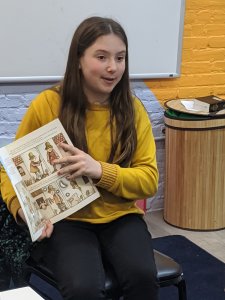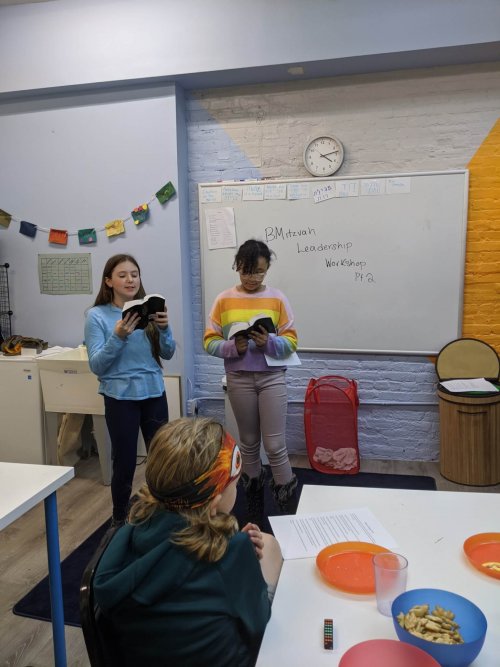
“I never thought a third grader could change my perspective on Jonah…”
One of the most powerful things we can learn is that we can learn from anyone! At the end of our study of the Book of Jonah, the BMitzvah cohort shared some of what we learned with the Nitzanim (2nd-4th grade) class. The BMitzvah students designed and taught two workshops for the Nitzanim class, one on leadership and the second on citizenship.
We started in our own class by flipping the script on snacktime learning. After years of being participants in Makom Community’s snacktime learning discussions, our BMitzvah students learned to lead their own. We broke down the components: a catchy hook to get us interested, reading through the text aloud, and asking detailed and targeted questions. Using a sample lesson and a guide for designing discussions from Understanding by Design, the cohort set to work designing their own discussions!
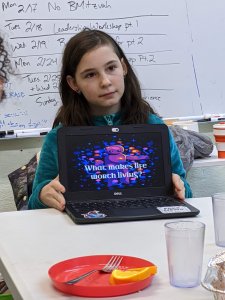
Ronia looked at the end of Jonah’s story through the lens of optimistic nihilism, asking the question: “How could Jonah have remembered what makes life worth living?” Zahdi focused on the theme of God’s authority in the last chapter, drawing connections between Jonah’s questioning of God and our own experiences of questioning authority. It’s easy to question someone’s decision if they’re a friend or a loved one, but what about if they’re your school principal? Our cohort had to think about that one.
After leading these discussions, the cohort was ready to design a workshop for the Nitzanim class. While we learned a lot from the character of Jonah, the cohort decided to focus on Jonah 3:4-3:9. In this passage, Jonah has given his prophecy that God will overthrow Nineveh unless the Ninevites change their ways. The Ninevites decide to fast and repent and, when the news reaches the king, he decrees that all of the city (human and animal) should fast and repent. This passage offered many juicy questions: Did the king consider the consequences of his actions? Why did the Ninevites listen to God after being wicked?
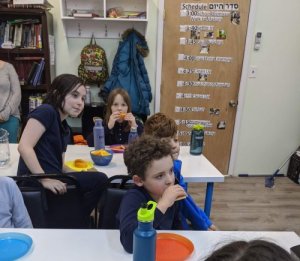
We all learned a lot from the Nitzanim students’ answers. Heath brought up the idea that fasting would conserve important resources in case there really was a disaster. Nathan said he would want to do the opposite of the Ninevites to be a good citizen, not wait until God threatened destruction.
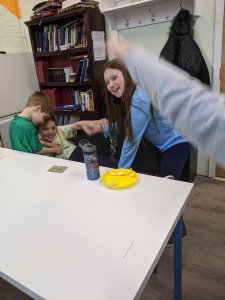
Our text discussions were supported by creative hooks and exercises. Leo led a discussion on the difference between leaders and bosses using a picture game. Zoey brought in a familiar story, Strega Nona, to illustrate how important listening and clear instructions are to both leaders and citizens. During our citizenship workshop, Remi emphasized teamwork by giving the Nitzanim group the task of making tableaus of different scenarios while being completely silent. The students found it hard to work as a team without speaking and employed lots of great strategies to overcome that!
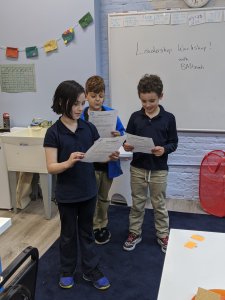
Throughout our two workshops, I saw our BMitzvah group gain confidence leading a discussion, giving clear instructions, and responding to surprising questions. I was also delighted that they gained new respect and understanding for the Nitzanim students. This kind of exchange is so important to community building. As the BMitzvah cohort takes on more leadership roles, I hope we can continue to share our learning with the rest of Makom Community and remember that we can still learn from every member of this community!